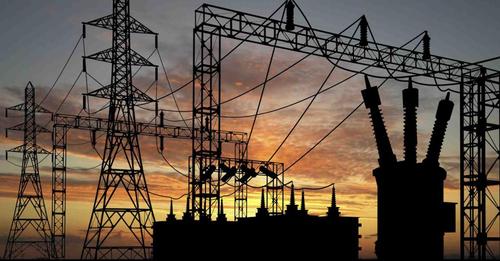Nigeria
NLC finds fault with FG’s planned TCN restructuring

The Federal Government’s proposal to restructure the Transmission Company of Nigeria (TCN) has drawn criticism from the Nigerian Labour Congress (NLC).
The union expressed its displeasure in a statement on Wednesday that was signed by Joe Ajaero, the president of the organisation, stating that such action might mean the end of the Power sector.
In 2024, the Federal Government intends to divest 40% of its stake in power distribution businesses to the capital market through the BPE.
“It holds great fear and trepidation for major stakeholders within the Power sector and portends great danger to the sector.” It jeopardises the state’s capacity to oversee, control, and ensure the security of the country’s grid system at all times,” Ajaero stated in part.
Ajaero claims that the reorganisation plan is an effort to transfer firm control to the aristocracy.
“We would want to state unequivocally that the notion underlying the alleged restructuring plans is the same broad strokes that were discussed prior to and throughout the industry’s disastrous privatisation attempt. These are the same tales that Nigerians have heard for years, and they have mostly had no notable impact other from the extra hardship that the exercise caused for the country’s population and economy.
“To prepare the TCN for eventual takeover by the cronies and lackeys of the ruling elite is the main motive behind the plans for the proposed restructuring,” he stated.
Ajaero went on to say that President Bola Tinubu was headed towards making the same error the previous administration had.
“According to NLC, the President is attempting to unbundle TCN for privatisation by following a policy path that past administrations have already taken, which is a mistake. Instead of attempting to start another exercise that would worsen the situation in the power sector, we had assumed that the President would have called a legitimate national stakeholders’ forum to critically examine the privatisation exercise in the sector, which the government itself acknowledges has not succeeded in achieving any of its primary objectives.
“The country’s electrical sector is about to face a multifaceted tragedy. The effort to eventually turn over the Transmission infrastructure would make the country more vulnerable to extortion and make it more difficult for the industry to transfer and distribute power across the nation. Privatisation will exacerbate the current crisis inside DISCOs and GENCOs and have an effect on the quality of services provided to Nigerians by the power industry.
The speaker added, “The nation’s power sector’s condition will grow as a result of what the administration plans to do, especially at a time when Nigeria is now leading other countries as the headquarters of nations suffering from power poverty. It will exacerbate the already dire socioeconomic circumstances in our country and has enormous macroeconomic ramifications for us.
If a deliberate power policy free from undue influence from proponents of neoliberal economic theory is not developed, Nigeria’s economy will deteriorate over the course of the next ten years. If we want to see genuine growth as a country, we must wean not only the electricity sector but the entire economy from the shackles of capitalism and its guiding principles.
“It is critical that we absorb lessons from the past to ensure that similar mistakes are not made and that our country does not suffer the same fate twice. This might be yet another hope lost if caution is not used!
